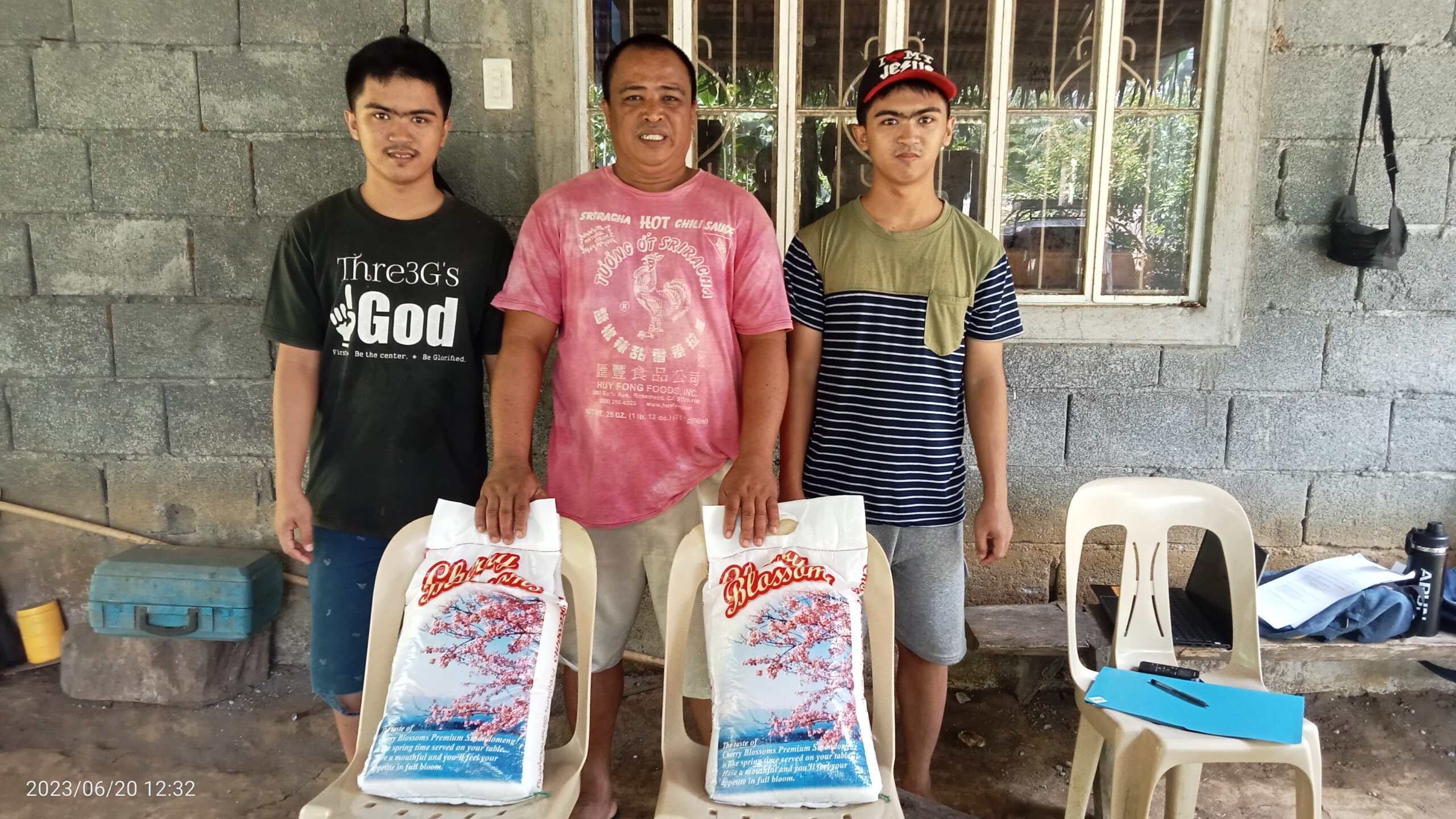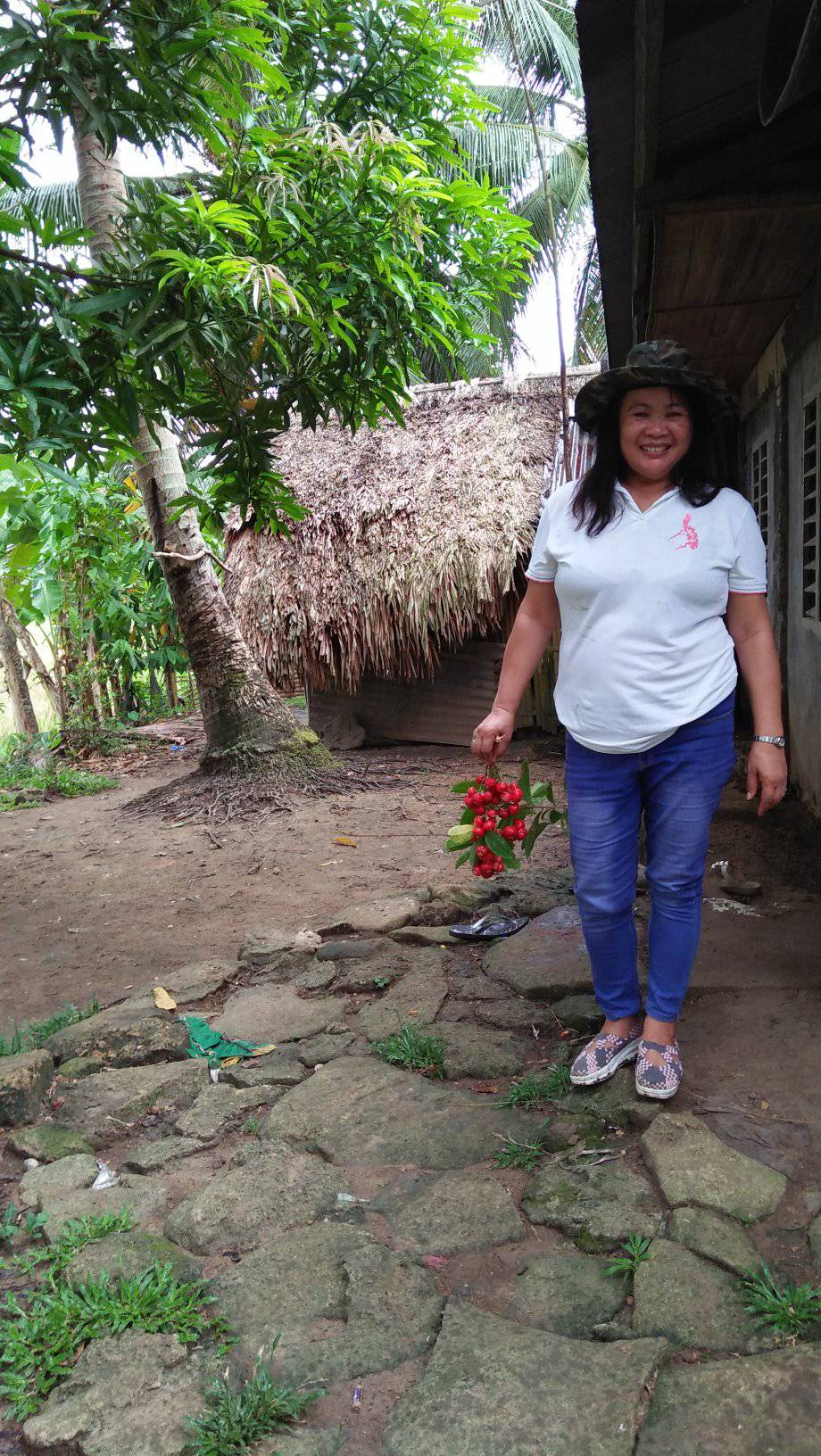Who is she?
Stories | September 18, 2019
Who is she? She is a wife, a daughter, a beloved member of her community.
She is a woman with hopes and dreams. And she is filled with love and joy at the prospect of becoming a mother.
She is Merina. She is at risk of fistula. And she needs your help.
Today there are 500,000 women in Nigeria, just like Merina, who are diagnosed with fistula. Many more women are at serious risk as they prepare for the birth of their baby.
A fistula occurs when an unborn baby’s head puts too much pressure on a mother’s maternal tissues, cutting off the blood supply. The tissue dies and leaves a hole, (fistula), which causes urine and sometimes faeces to leak uncontrollably.
Left untreated, fistula can lead to chronic medical, social and psychological problems, such as isolation. They are often excluded from daily activities. Many women live with the condition for decades, unable to access the medical care that can help them and change their lives.
“Who was I? A woman? I will never forget losing my baby. And I will never forget having fistula. It was hard. I constantly dripped urine and I smelled bad. I was so ashamed. I was very sad. All my joy had disappeared. I thought I was the only woman with this condition. But a kind doctor told me I could be treated.
“My joy and my strength have returned. Today I sing about fistula, letting other women know what it is and that they can be treated. I want to help other women, just like I was helped.”
She is… educated and trained. “Women who have lost their baby during childbirth – and then are diagnosed with fistula – need our help and love more than anyone.
“They might hide for years and years. Sometimes their husbands abandon them, leaving these vulnerable women to fend for themselves. Their communities may also reject and stigmatise them.
“Trained midwives, doctors and healthcare workers will help identify problems during labour. They will help to deliver the baby safely, and to treat women with fistula. They will also help to inform and educate, to spread awareness of this condition, so women and girls do not need to feel isolated and alone. I’ve seen firsthand the difference your compassionate support has made to maternal healthcare programs for women in Africa.”
“I had given up hope. First, I lost my baby, then I thought I would never lead a completely healthy life again. Thank you, God. I am so happy. I had the surgery yesterday. The doctors have told me that I will become completely healthy again. I’m optimistic again. I don’t have a fistula anymore. Here you receive help; nobody is discriminated against.
“In my village I will tell all women that they don’t need to hide if they have a fistula. And if I meet a young pregnant woman, I will tell her to go to a proper hospital early enough for giving birth. Nobody needs to suffer like me.”
The main causes of fistula are extreme poverty and the low status of girls and women in many developing countries. In the poorest places, malnutrition can affect the growth of the skeleton, including the pelvis. This can lead to birthing difficulties, and a fistula can occur. Living in poverty also means many women often cannot afford adequate health care or have no access to it.
CBM is active in the poorest communities, raising awareness about the importance of good maternal healthcare and the prevention of birth injuries such as fistula. In remote areas, we’re also training local healthcare workers to be able to identify high‑risk pregnancies and refer those women to hospitals.
CBM is focused on delivering a three-year program dedicated to expanding our fistula program across Nigeria. Your support right now can provide:
- Better maternal healthcare delivered through partnerships with medical teams, hospitals and health clinics;
- Greater awareness, education and support of maternal and child health services including Fistula prevention;
- Training for community healthcare providers, including clinical monitoring and support visits.
- You can help improve maternal healthcare in Nigeria.
Nigeria has the world’s highest rates of fistula with over half a million women living with this treatable and preventable condition. Poverty, lack of healthcare access and cultural practices have exacerbated this situation.
Your support can help improve access to greater healthcare for expectant mothers and education for women and girls. Your gift will help:
- Train healthcare workers in the identification, management and referral of women with fistula for surgical treatment
- Provide greater surgical outreach to facilitate access to treatments
- Create advocacy and community awareness on maternal and child health services, including fistula prevention and treatment
- Promote and support emergency obstetric care and fistula treatment
With your help we will launch a life-changing program that will not only treat Nigerian women living with this painful and debilitating condition but also importantly educate, inform women and prevent this condition from occurring. Please donate today: https://my.cbm.org.au/mumsmatter
https://www.cbm.org.au/stories/who-is-she
Related Stories

Rise and Thrive: Building resilient communities through inclusive mental health
As the climate crisis accelerates, communities across the Indo-Pacific...

A Father’s Unconditional Love
Allan is a farmer and father of 21-year-old twin brothers, George and Gerald, who together, live in a remote village in the Bicol region...

Estrella’s journey from patient to mental health advocate
Had you asked Estrella from the Philippines what her future looked like five years...
